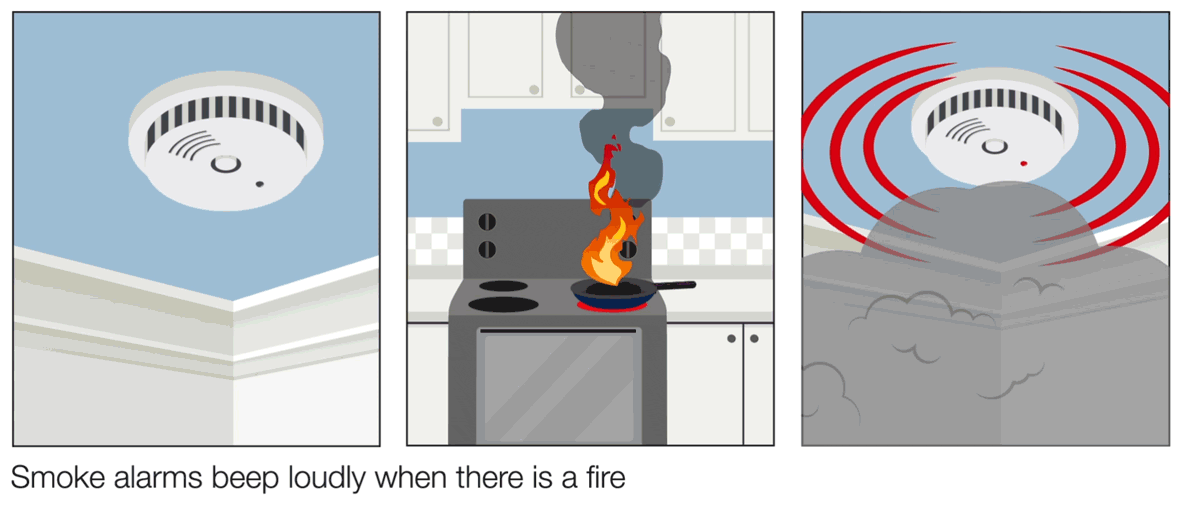Only working smoke alarms save lives
Are you sick of hearing the sound of a nagging smoke alarm? Change your old smoke alarms to a new unit with a long-life battery that has a 10 year lifespan.
New smoke alarms that have a 10 year lifespan ensure families can feel the highest level of security. Working smoke alarms are your best defence against preventable residential fires, especially during the night, when people lose their sense of smell. These new alarms provide the security of knowing you and your family are protected, while also ensuring you’re not interrupted every year with a nagging smoke alarm.
Why should I have a smoke alarm?

In the past decade, Victorian firefighters have responded to more than 30,000 residential fires across the state, with more than half of all fatal fires starting in people’s bedrooms and living areas. Despite this, a concerning number of Victorians still do not have smoke alarms in their bedrooms and living areas. Did you know that most fatal fires happen in the sleeping hours between 8pm and 8am?
When you‘re asleep you lose your sense of smell. A smoke alarm is your electronic nose. It will alert you if there is smoke from a fire. A small fire can grow to involve an entire room in just two to three minutes. A smoke alarm provides early warning and time to escape.
Smoke alarms are compulsory in every home
Since 1 August 1997, Victorian law states that smoke alarms (complying with Australian Standards AS3786) must be installed in all homes, units, flats and townhouses. It is the responsibility of all owners and landlords to install working smoke alarms.
Homes constructed before 1 August 1997 need only standalone, battery powered smoke alarms. Homes constructed after 1 August 1997 must have smoke alarms connected to 240 volt mains power. These smoke alarms must also have a backup battery installed in the smoke alarm in case there is a loss of power.
Additionally, in homes constructed or largely renovated after 1 May 2014, where there is a need for more than one smoke alarm, all smoke alarms must be interconnected so that if one smoke alarm activates, they all will.
Smoke alarms for people who are deaf or hard of hearing
Specialised smoke alarms are available for people who may have difficulty hearing standard smoke alarms and evacuation systems.
The main body of the unit looks like a normal smoke alarm on your ceiling. The other parts are a strobe light (sight) and vibrating pad (tactile) for your bed. In the event of a fire, all alarms will sound, the lights will flash, and the vibrating pad will activate.
Specialised alarms can be interconnected with conventional audible alarms in different locations within the home.
Due to the cost of this type of alarm a Smoke Alarm Subsidy is available. Find out if you are eligible for the Smoke Alarm Subsidy via Expression Australia.
106 – Text Emergency Relay Service
People who are deaf or have a hearing or speech impairment can use a teletypewriter (TTY) to call 106. 106 is a text-based emergency call service. When you call 106, the operator will connect you with the emergency service organisation (police, fire or ambulance) you request. You cannot access 106 by SMS. Find out more via Triple Zero – Department of Home Affairs.
See also:
Page last updated: Friday, 11 April 2025 3:32:35 PM